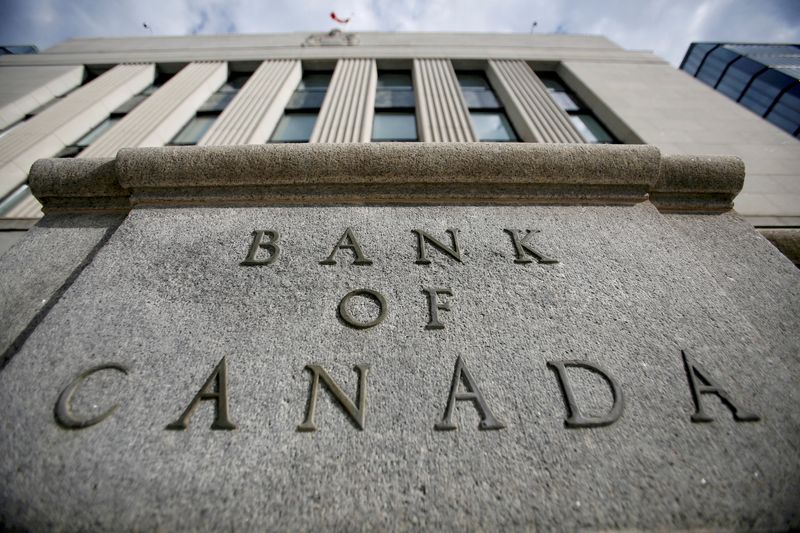By Steve Scherer and David Ljunggren
OTTAWA (Reuters) -The Bank of Canada is ready to step in with support if the banking system comes under severe strain, but now it is not even close to being worried about the health of the financial system, Deputy Governor Toni Gravelle said on Wednesday.
In a speech to financial services professionals in Montreal, Gravelle also said the central bank's quantitative tightening (QT) program will have run its course by the first half of 2025.
The failures of U.S. lenders Silicon Valley Bank and Signature Bank (OTC:SBNY), followed by Credit Suisse's rescue, are prompting central bankers to closely monitor the potential for banking stress to trigger a credit crunch.
"The bank's mandate to promote the stability of the financial system means that we're ready to act in the event of severe market-wide stress and provide liquidity support to the financial system," Gravelle said.
This is the first time the Bank of Canada has commented on the banking turmoil in the U.S. and Europe.
After the speech, Gravelle responded to a question about the health of Canada's banking system, saying: "We don't feel we're anywhere close to being concerned in terms of financial system stress."
Gravelle pointed to the 2008-2009 financial crisis and the outset of the COVID-19 pandemic as examples of where the bank had intervened in the past. But there were also lessons taken that would be addressed in the future, he said.
"If we need to step in again, we will - as we always do - have an eye to mitigating moral hazard," Gravelle said. Moral hazard is when investors feel they can take unusual risks without bearing the consequences if things go wrong.
Gravelle said that penalty pricing - which would make the program unattractive once financial conditions improve - would be built into future extraordinary actions, which would be taken only in "extreme market-wide situations, when the entire financial system faces funding constraints".
For now, the banking stress in the United States appears under control. Top U.S. banking regulators on Monday said they planned to tell Congress that the overall financial system remained on a solid footing despite recent bank failures.
Gravelle said if there were another massive crisis that the bank could not address through its emergency tools, "we may well be in a 'break the glass' situation ... (and) may resort to large scale Government of Canada bond purchases".
Looking back on the management of its extraordinary measures during the pandemic, he said the central bank would seek to communicate better any future quantitative easing program to the public, "clearly distinguishing between asset purchases for market functioning and those for monetary policy".
The bank has been letting bonds it purchased during its quantitative easing program roll off its balance sheet for about a year.

At its peak, the central bank had C$440 billion ($324 billion) in government bonds, and it now has about C$200 billion. The QT will be discontinued when its holdings are in the C$20 billion to C$60 billion range, Gravelle said.
($1 = 1.3569 Canadian dollars)